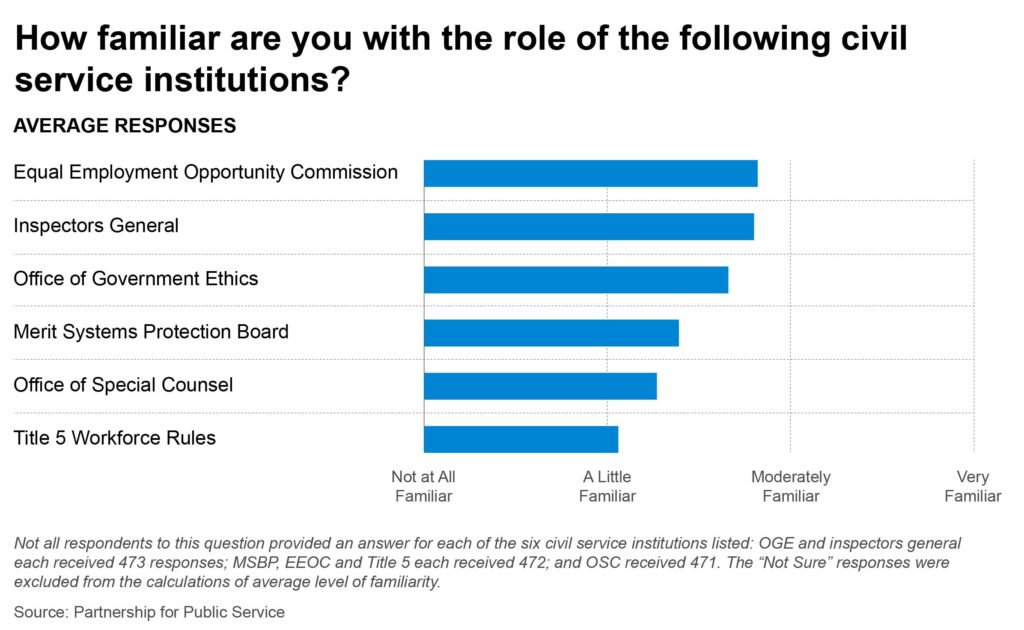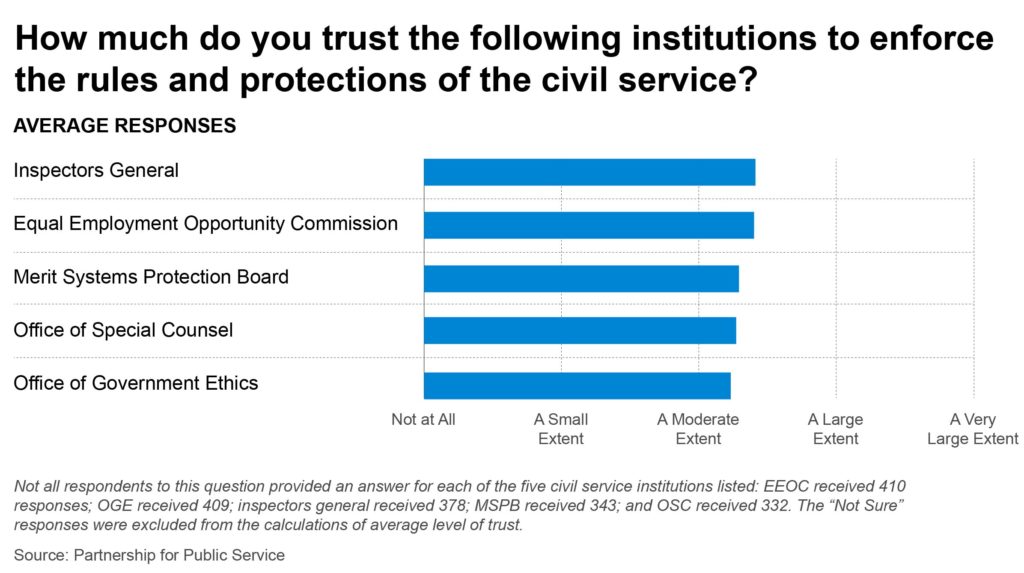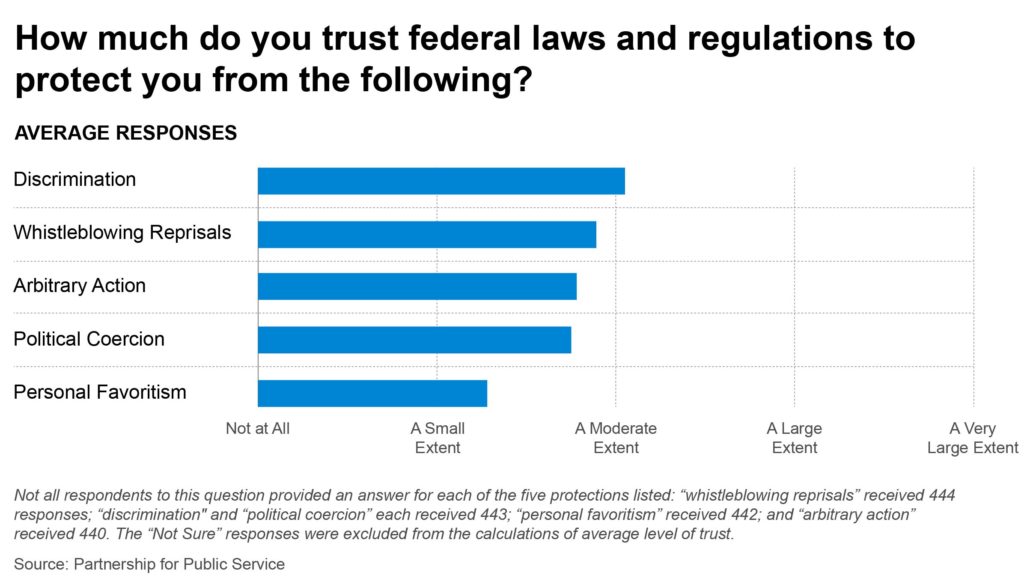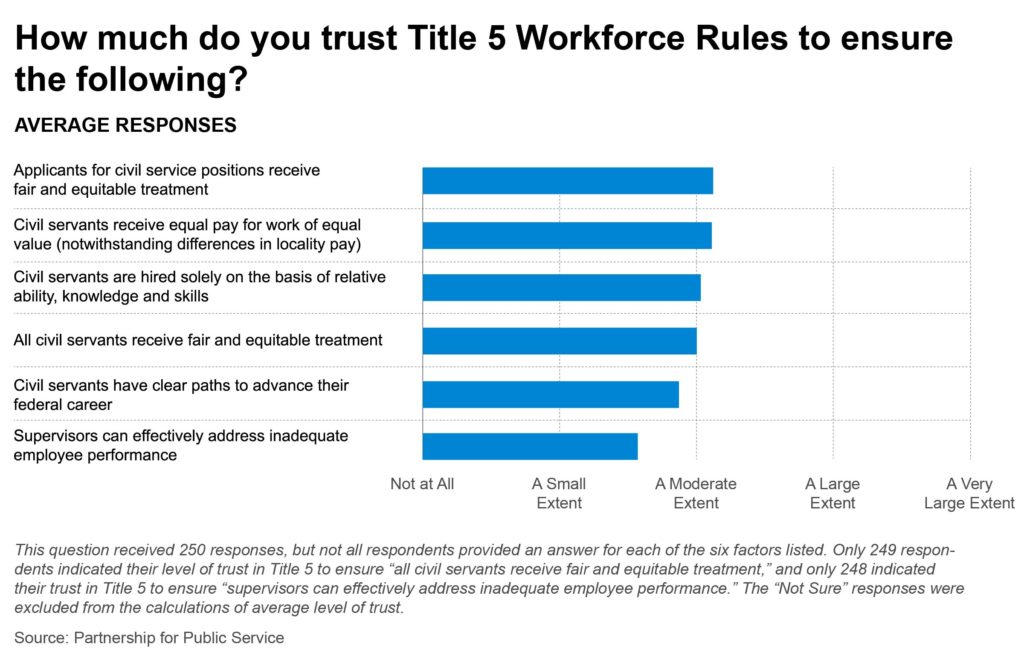The Partnership for Public Service’s new Agency Performance Dashboard provides digestible insights on 24 federal agencies, including workforce trends such as demographics, employee engagement, employee education and organizational finances. Each dashboard offers one of the most comprehensive looks at agency trends, performances and workforce data available to the public in one place; its content will update as data evolves and as new features are added.
By making this information available to the public, federal stakeholders, congressional staff and journalists, the dashboard sheds light on key agency insights and has the potential to hold agencies accountable to meet the needs of customers and federal employees. A few representative insights from the dashboard’s federal workforce demographic and retirement data are included below.
Demographics
The Partnership’s Agency Performance Dashboard spotlights the racial, ethnic and gender breakdown of the Senior Executive Service, or SES, at each of the 24 featured agencies. In light of President Biden’s new executive order on strengthening diversity, equity, inclusion and accessibility in the federal workforce, this data is especially important.
As of September 2021, 23.2% of government-wide SES members identified as people of color—a group that includes those who identify as American Indian or Alaska Native, Asian American, Black or African American, Native Hawaiian or Pacific Islander, Hispanic or Latino, or more than one race.
Notably, a few agencies had significantly higher or lower numbers. For example, the Defense Department and the State Department—not including Foreign Service—had just 16% and 17% of their SES identify as people of color, respectively. As of September 2021, these percentages were the lowest of any agency on the dashboard.
On the other hand, the Office of Personnel Management and the Department of Housing and Urban Development had the highest percentage of SES members that identified as people of color—38.6% at OPM and 43.8% at HUD.
In addition, 36.2% of all SES members government-wide identified as female as of September 2021.
HUD and the Department of Health and Human Services are well above this government-wide average.
At HUD, 54.2% of SES staff identified as female; at HHS, 56% of SES identified as female. These notable exceptions in gender representation contrast with other agencies such as the Justice Department, where only 26.6% of SES members identified as female, or the Department of Energy, where only 25.7% of SES personnel identified as female.
Retirement eligibility
For decades, government officials have worried about a “retirement tsunami”—a large wave of retirements that could drain the government of institutional knowledge and leave agencies unprepared to deal with big challenges.
The Agency Performance Dashboard provides insight on this issue by displaying the retirement eligibility of employees at each agency in both fiscal 2021 and fiscal 2025.
Government-wide, 18% of the federal workforce was eligible for retirement in fiscal 2021 and 31% will be eligible in fiscal 2025.
These are worrisome numbers, particularly given that some agencies have even higher retirement eligibility rates. For example, 29% of all HUD employees were eligible for retirement in fiscal 2021 and 44% will be eligible in fiscal 2025—the highest percentages of any agency on the dashboard.
Overall, the Agency Performance Dashboard—which will update as new data emerges and new features are added—benefits both federal agencies and the American public. Agencies can use the dashboard to glean insights about their operations and workforce, identify areas for improvement, and discuss best practices with other departments across government. For the public, the dashboard provides easily accessible information about how agencies work, thus enabling greater government accountability and transparency.
For more insights into the 24 agencies featured, view the Agency Performance Dashboard, which also includes information on agencies’ social media presence, the status of their political appointments, their employee engagement scores and more.




